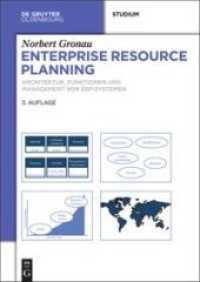Full Description
Digital games offer enormous potential for learning and engagement in mathematics ideas and processes. In particular, the volume advocates for new and different ways of thinking about mathematics in our digital age—proposing that these mathematical ideas and numeracy practices are distinct from new literacies or multiliteracies.








